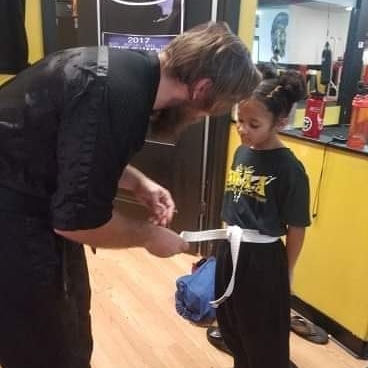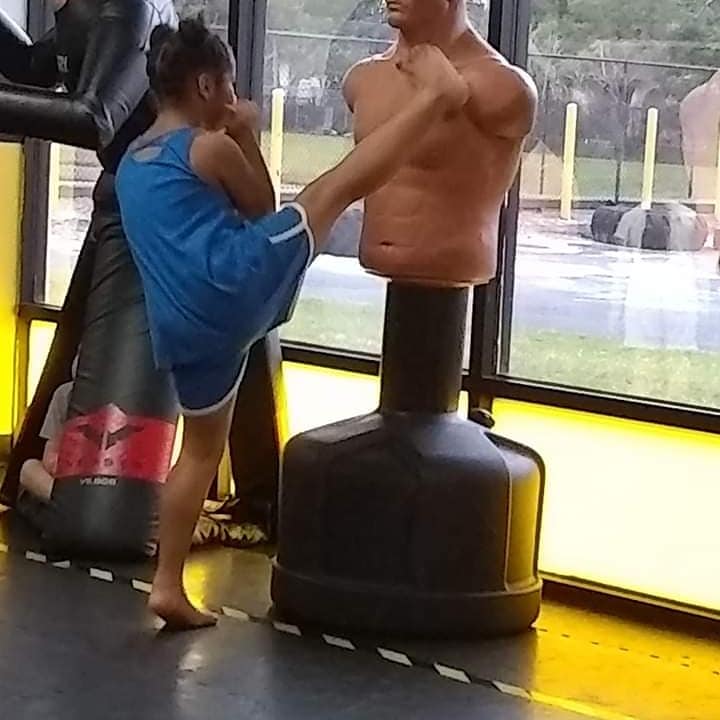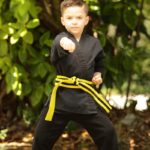
7-year-old Sophia Johnson was bullied in first grade because of the leg braces that she needed to help her walk. Because Sophia was often wheelchair-bound and around 30 pounds overweight, her parents decided it was time to make a change in their daughter’s life.
“I’d pick her up, and she would be bawling,” Sophia’s father, Brian, said.
After asking Sophia’s multiple doctors and therapists if karate was safe for her to try, Sophia’s father took the lead in convincing his wife, Tracy, that martial arts would help their daughter.
“I just wanted to give her more confidence, and I took it when I was little,” Brian said. “She needed someone besides her mother and father because her whole life was doctors and therapists, so someone else guiding her was a good thing for her.”

Sophia, who is autistic, epileptic, born addicted to drugs, and suffered a stroke while in the uterus, takes 14 pills every day. Today, she is a yellow belt in karate and won first place for point sparring at the Pan American International Karate Championships, one of the largest and most prestigious international karate championships.
Tracy and Brian Johnson initially had a hard time getting doctors and therapists to sign off on karate due to its physical nature, but after talking to a neurologist and one year of Sophia being involved, Tracy recommends it to all of her Facebook autism communities.
“It’s the first thing I tell people in online support groups for special needs; I always suggest martial arts,” Tracy said.
About one in 59 children across the United States is diagnosed with autism, which is an increase from one in 68 children diagnosed in 2016 when the study first began, according to an April 2018 CDC press release.
Tracy related that karate helps to decrease aggression and frustrations due to autism and serves as an outlet for Sophia to express herself.
“Once she puts on her sparring helmet, a pink, padded helmet, she is a different person,” Tracy said.
The typically quiet, straight-A student at school transforms when she goes to karate class six or seven times a week.
Sophia’s doctors told her parents that she may never be able to be potty trained or walk when she was born, Tracy said. Now, she listens to her senseis at karate class more than anyone else.
“She wasn’t supposed to do this, so now that she’s winning and is so successful, it’s an honor to be part of what brought it out of her,” said sensei Erik Gianini from Bobby Dixon’s American Martial Arts Academy.

Sophia practices martial arts with the regular curriculum and students. The entire dojo often calls her “super Sophia,” and during the Pan American International event, everyone wore “super Sophia” pins as she won her first-place, six-foot-tall trophy for sparring.
“She has the best flexibility in the dojo,” Gianini said.
The dojo is now training to compete at the Blitz Martial Arts tour in January, which costs $345 for the least expensive package to be able to compete.
“We raise her as if her autism is not an obstacle,” Brian said. “We are really lucky, though; you see movies and other kids with autism and hear horror stories, but with Sophia, she has only had about three big meltdowns last year.”


